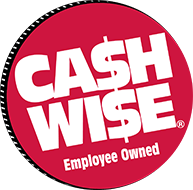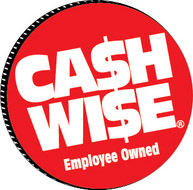 Plant Based or Plant-Based Junk Food?
Plant Based or Plant-Based Junk Food?
It’s no news that plant-based diets are gaining popularity, but what does plant-based mean? To some it may mean going vegan, while others say it’s being vegetarian, while still others may describe it as incorporating more plant foods into their daily eating patterns. Regardless of how it’s described, as a Registered Dietitian, I love to see more and more people turning to plants! From fruits and veggies, to whole grains, nuts and seeds, plants are all important to have in a balanced diet.
With the popularity of plant-based foods, this trend is here to stay. However, just as with other trends, food companies thrive on using marketing techniques to entice shoppers to buy their products. The animal protein alternative category has exploded with products designed to replace or imitate traditional meat and dairy products, which include plant-based milk, tempeh, tofu, bean burgers, as well as, plant-based sausages, deli meats, crumbles, nuggets, and steaks.1 While the traditional meat and dairy alterative category grows, it’s important to learn how to navigate the Nutrition Facts Label to determine if these alternatives are plant-based protein or plant-based junk food.
How to navigate the Nutrition Facts Label:
-
Saturated Fat:
While one would think that switching to a plant-based meat alternative would result in lower saturated fat, the reality is that many meat alternatives, especially hamburger imitators, have comparable amounts. Our team suggests looking for options that have less than 4 grams of saturated fat per serving—or just look for the ‘Dietitian’s Choice’ logo!
-
Sodium:
This part of plant-based meat alternatives is often left off front-of-package labeling. The amount of sodium in these products can vary considerably from product to product and brand to brand, however, it is important that consumers check this part of the Nutrition Facts Label. With some brands reaching up to 700 mg of sodium or more for imitation meat, shoppers can look for lower sodium options such as black bean burgers or even adding spinach to your burger patties next time you grill out at home. If you are purchasing packaged meat alternatives our team suggests looking for options that have less than 450 mg of sodium per serving—or just look for the ‘Dietitian’s Choice’ logo!
-
Protein:
Plant-based products must have comparable protein, right? Not all animal alternatives are created equal when it comes to protein. For example, soymilk has 7 grams of protein per cup compared with almond milk which only has 1 gram. If you are purchasing a milk-alternative for protein, we suggest looking for a product with at least 6 grams of protein per serving. If you are purchasing a meat-alternative, we suggest looking for the ‘Dietitian’s Choice’ logo on the shelf-tag.
The plant-based protein category is ever evolving. While these foods can fit into a balanced diet, it is important that shoppers recognize that just because a product is labeled ‘plant-based,’ it doesn’t necessarily mean it’s more nutritious! Use the tips above to help you find plant-based foods that fit into your lifestyle! And don’t forget—fruits and veggies are plant based, too! #HaveAPlant
Happy & healthy eating!
Emily, MFCS, RD, LD








